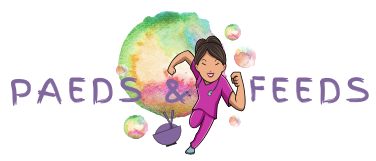For all children part of growing up means falls and scrapes, bumps and bruises. Normal active children will all have their fair share of minor accidents and their corresponding injuries.
Sometimes it can be really hard for a parent to judge whether a knock to the head constitutes a serious injury or not. Many of us worry unnecessarily about trivial injuries, whilst some others do not seek medical opinion for fear of overreacting. Fortunately, many head injuries are only minor and can be managed conservatively at home with an ice pack and rest. They may result in a small bruise or “egg” swelling, but resolve without long term consequences. When head injuries are more significant, you may need to bring them to a doctor for an assessment.
Back in the day, when I worked in a busy paediatric emergency department, head injuries were commonplace (as no doubt they still are) and my kids have had definitely had their turn (once my husband turned up with my daughter to the RCH Brisbane ED where I was working, with my daughter who had fallen and was bleeding (over EVERYTHING) from her mouth… definitely funnier in retrospect for sure *eye roll* I had literally left them less than an hour before). Some kids could be sent home straight after being seen and some kids were kept in the department for observation for a few hours. Some children might have needed stitches, whilst others who had more severe injuries might have needed to see the neurosurgeons.
Certain features of the history might wave a “red flag” to indicate that the head injury could be more serious.

If your child has had an accident and if these apply to your child, then you should call an ambulance and seek medical attention:
- If your child sustains a head injury after falling from a height greater than one metre (eg off a retaining wall, off playground equipment
- If your child is involved in a high speed accident eg car crashes, bicycle/skateboard/scooter accidents – especially if they were not wearing a helmet, or the helmet they were wearing is cracked or damaged
- If your child becomes unconscious, drowsy or confused after their accident
- If your child vomits more than once after they hit their head
The term concussion is often used when referring to a head injury. It indicates a mild injury to the brain that causes it to malfunction (resulting in loss of consciousness or difficulties in thought processing). Some signs of concussion can include headaches, confusion, dizziness, memory loss around the time of the injury, altered levels of consciousness. These effects are usually temporary.
Signs of minor head injury
- Bruise or graze to the head
- Only one vomit
- Rapid return to normal (now alert and interacting well)
- Seems otherwise normal
Signs of moderate to severe head injury
- Loss of consciousness (child is unable to open their eyes, speak or follow commands; no response or awareness to stimulation and memory loss around the period before and after the injury)
- Confusion, memory loss, disorientation to place/time/person
- Drowsiness
- Large boggy swelling, bruise or bleeding from a cut that is difficult to stop
- Unequal sized pupils or weakness in one or more of their limbs
- A seizure or convulsion
What to do AFTER the injury
Kids need rest and plenty of sleep (especially in the first day or two) after they’ve had a head injury (even a mild one). It can take many weeks to fully recover, but in the majority of cases symptoms of concussions resolve within a few days with little to no intervention.
Generally there is no need to wake your child at a time they would ordinarily be asleep unless advised to do so by the doctor. If a child has had a significant history of head injury, the high risk observation period is usually in the first 6 hours following the accident (so don’t wake your child at night for a head injury that occurred at lunch time! ). Having said this, most emergency departments will keep children for at least a 6 hour period of observation if a moderate to severe head injury is suspected. Make sure you seek medical attention if at any time you have difficulty rousing your child.
If your child has a headache following a bang to the head, then simple pain relief like paracetamol can be given every 4-6 hours. Try to stay away from anti-inflammatory painkillers like ibuprofen in head injury, because they have effects that can delay the blood’s ability to clot (not a great thing if you have a bleed somewhere in or on your head).
When a child has had a head injury, they should be slowly re-introduced to school and sport. I will blog specifically about this next week (because this blog has ended up much longer than I expected it to be!)
In medicine, there is a saying… “Never say never.”
All kids who get head injuries are not the same, and different kids with the same injury (or different kids with different injuries for that matter) can present in various ways. Some symptoms can emerge immediately (eg pain, blurred vision, dizziness) and others may take weeks to appear (eg headaches, fatigue, mood swings, irritability).
If your child displays any of the symptoms listed below at any time following a head injury, seek medical attention from a doctor (or if after hours, your nearest emergency department):
- Clumsy gait or poor co-ordination
- Slurred speech
- Seizure/fit/twitching
- More than one vomit
- Headaches that are not relieved by paracetamol
- Headaches that are severe and persistent
- Hypersensitivity to sound or light
- Disturbances in vision (eg blurred vision, double vision)
- Weakness in the arms or legs (new or worsening pre-existing)
- Confusion or odd/unexpected behaviour
- Any kind of discharge from the nose or ear
I hope this helps you to distinguish between serious and not-so-serious head injuries… or at least when you should be seeking a medical assessment for your child following a head injury. Don’t forget that if you are worried about your child after a head injury, paediatric emergency department staff are happier to have you present to hospital for evaluation, rather than sit at home worried about your potentially sick child. No one will tell you were silly to seek attention!
See you soon!!
xxDr Megs

